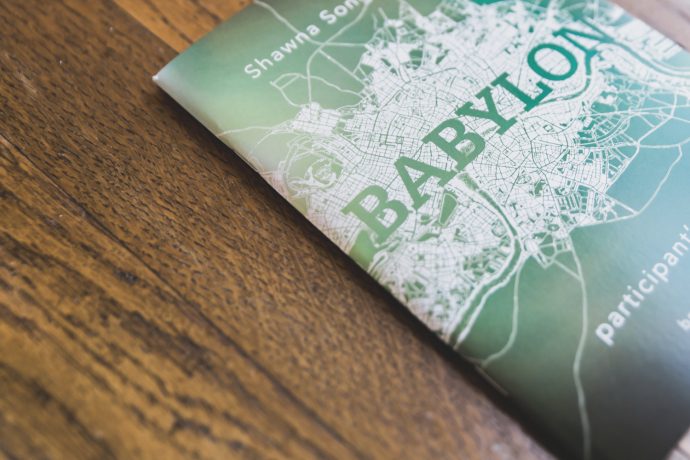Gentle cruelty was the balance I tried to strike in my first new student orientation with incoming freshmen and their parents at Trevecca Nazarene University. I was asked to bring the devotion for the morning session. What devotional thought do you bring to eighteen-year-olds on the precipice of their first taste of freedom and their parents on the verge of an emotional breakdown?
Jeremiah 29:11 has to be one of the gentlest, most uplifting verses in all of Scripture. “‘For I know the plans I have for you,’ declares the Lord, ‘plans to give you hope and a future.’” This is what eager students want to hear: God has a plan for their lives. This is what anxious parents want to hear: Their children’s futures are full of hope.
But don’t miss the subtle cruelty. Jeremiah said this to the people of Israel as they sat in shackles by the rivers of Babylon, where their captors mocked their misery. The most popular hope among the people of Israel was to believe their captivity would be short-lived—an uncomfortable, extended vacation.
The captivity in Babylon was not short-lived, though, and Jeremiah knew from the beginning that it would not be. So he gave the people of Israel a very important and very cruel command: Seek the welfare (shalom) of Babylon.
How were these people expected to seek the welfare—shalom, peace, wholeness—of a city that was sustained by the workforce of enslaved people? How were they supposed to help Babylon prosper when its riches came at the expense of the poor within their borders and the resources of weaker neighbors?
Jeremiah told them to settle down, build houses, plant gardens, get married, and have babies—because they were not going anywhere any time soon. That was the plan. That was the plan God had for them. Well, not the entire plan. But for most of the people hearing the words of the prophet, this was the only part of the plan they would ever see. They would grow old and die in Babylon and never see Jerusalem again.
Are you thinking about scrubbing that Jeremiah 29:11 decal off your kitchen wall yet? Hang with me just a little longer!
Most of the Israelites eventually did settle down in Babylon. They didn’t have a lot of options since they were slaves. And they got married, and they had children. Their children had children. They bought and sold their crops at the market and washed their clothes in the Euphrates next to the Babylonian women. They might even have worshiped in the temples of the Babylonian gods from time to time and occasionally profited off the exploitation of other immigrant communities. At some point, in seeking the welfare of Babylon, they began to put their hope in Babylon’s future.
I work with young adults. I want to teach them to serve and love the city of Nashville, where we live; to learn its history and culture; to discover the neighborhoods and delight in the art and music; to find the forgotten corners and shed light in the darkness. But they can only truly love and care for the world around them when their ultimate desire is for God’s redemptive plan to unfold.
It’s hard to see the writing on the wall when that same wall is holding the roof over your head.
Jeremiah called the people of God to seek the welfare of the city because their hope was in God’s future. We realize now how foolish it would have been to put their hope in Babylon’s future. Babylon crumbled. We know that. But it’s hard to see the writing on the wall when that same wall is holding the roof over your head.
I work with a generation that longs to engage this world. The call to seek the welfare of the city receives a resounding response of, “Send me!” This enthusiasm thrills my soul! But I hope they understand that they will be a gift to the world only inasmuch as they are living into God’s hope for the future.
God does have a plan for the future. God’s plan is the ultimate redemption of all creation—even Babylon. And that future is filled with hope. In fact, it’s so full of hope that there is plenty to live in right now, in the cities where God has planted us to work for shalom.
Learn more about Shawn Songer Gaines’ newest small group series, Breathe: Babylon.





0 Comments